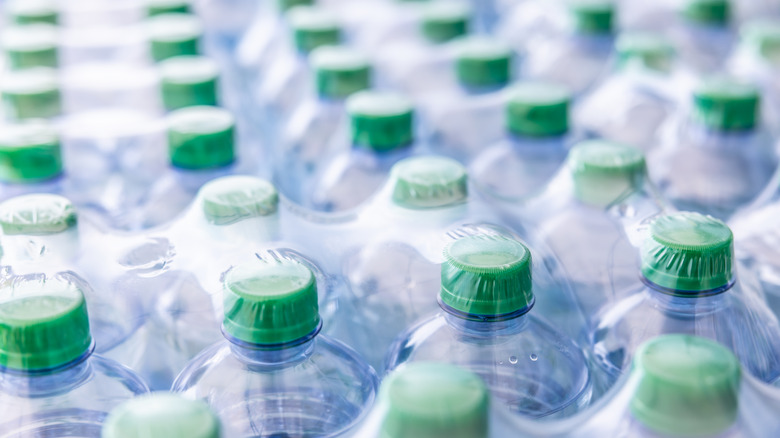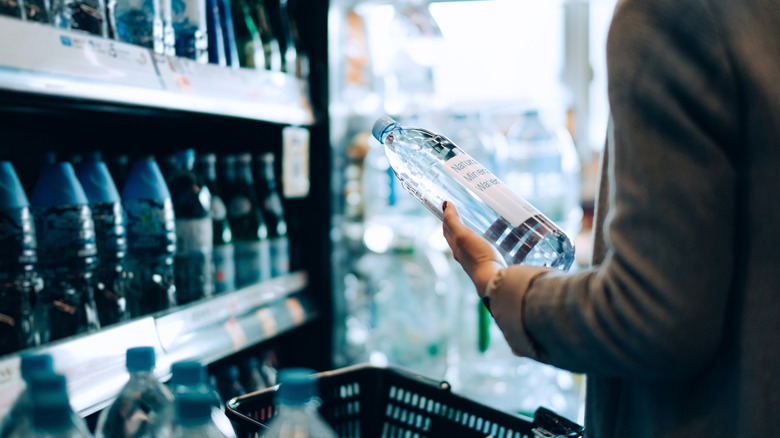The Unconscious Mistake You're Making When Buying Bottled Water
It's easy to get confused with the number of popular bottled water options available. The confusion is compounded when companies use slick marketing techniques to grab your attention and lead you to think they have the purest, best-tasting water. With that sort of pressure, no wonder there are many unconscious mistakes consumers can make when buying bottled water.
Big corporations' marketing departments study what is important to consumers and then exploit them, playing off their fears and desires. Consumers want fresh, pure water – or at least what they perceive to be as such — and often may envision their ideal water bubbling from a mountain spring. Advertising gurus know this and make sure their brand represents their ideal.
In a famous case in the late '90s, Dasani–owned by Coca-Cola–took heat for sourcing its water from municipal sources before it was put through a purification process. Envisioning that mountain spring and having high expectations, many consumers were upset to find out the same tap water they get for free had been bottled and marked up by Dasani. To avoid the confusion when shopping for bottled water, take a close look at the label, which should key you into exactly where the water came from. And be sure to avoid falling for flashy but ultimately meaningless marketing terms, though at least in the wake of the '90s bottled water kerfuffle the FDA tightened rules for how companies could deploy label terms like "mineral," "purified," and "spring water."
The alkaline water myth
Okay, so the whole "mountain spring" thing might be more marketing than reality, but what about alkaline water? Purchasing water labeled alkaline is a waste of money despite what the label says about it being so good for you. Frankly, there are no proven health benefits to drinking alkaline water. If you feel the need to try it for yourself, you can add ⅛ of a teaspoon of baking soda to eight ounces of regular water, making it at home for a lot less money.
All that marketing is big business. In 2019, bottled water companies spent an estimated $203 million on advertising, underlining the importance of grabbing consumers' attention in an industry with so many options. Labels with pictures of brooks, mountains, and aqua-blue colors attempt to convince you that the bottle contains the purest product — even though no one can quite define what that quasi-mythical purity should be.
Sometimes, we purchase a bottle of water just for the convenience of having something to drink on the go. Hydration is very important, but there are other options besides a plastic bottle of water. We would be remiss in our duties if we didn't point out that buying a reusable bottle and ditching single-use plastic (which can expire, by the way) is the most sustainable and earth-friendly option and the best way to not fall for marketing pressure.

